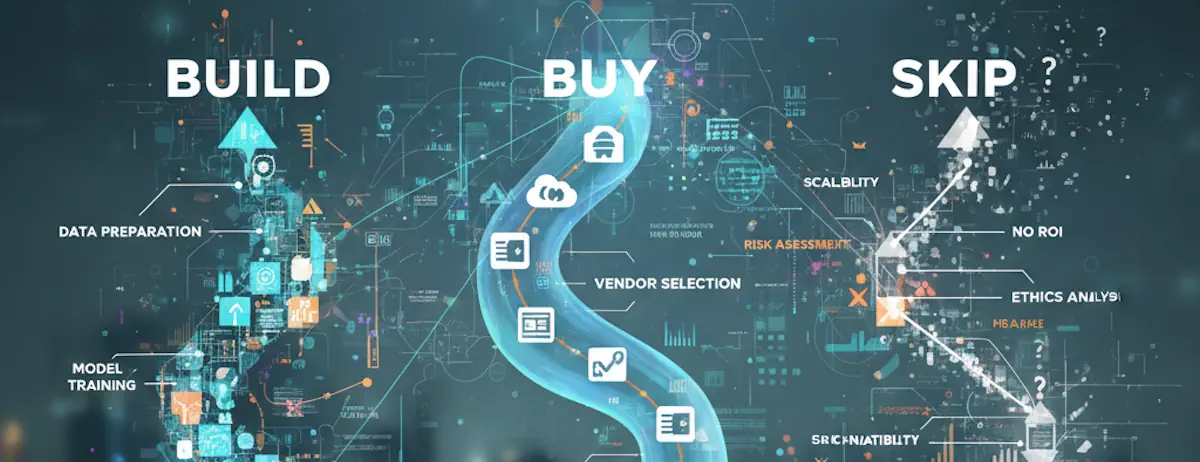
Over the past several years, my career and learning path has dove deeper into leadership strategy and product marketing. As with many organizations, the excitement of machine learning, AI, and rapid prototyping has found a home in our team as we research, learn, test… and then either succeed or fail… then start all over again! I recently had a chance to sit down with product team leads from a few different organizations and talk about ideas, trends, and how teams were keeping up.
One interesting disagreement in the room was how deep a product team’s understanding of their technical should be and why. Given my technical background, I’m sure you can already guess my opinion, but it felt important to lay it all out there.
I believe that one of the key areas where product managers must excel is in their understanding of the technical domain of their product.
Let’s dig into the why’s:
- why is it important for product managers to understand the technical domain of their product,
- why those benefits matter in your strategic planning and tactical execution, and
- why positioning yourself as lifelong learner is critical to personal and professional success.
Understanding the Technical Domain
Product managers are responsible for creating and executing the product strategy, defining the product roadmap, and ensuring that the product meets, or best yet, exceeds, the needs of the target market. To do this effectively, product managers must have a deep understanding of the technical domain of their product, the product ecosystem, and the services at their disposal.
What does this mean? Generally, understanding the technical domain means having a working knowledge of the technology and engineering principles that underpin your product or service. This includes understanding the underlying architecture, the technologies (web, design, data storage, accessibility, etc.) used, how those technologies fit together to create a whole product, and the technical trade-offs that must be made when designing and developing the product.
Without this understanding, product managers will struggle to communicate effectively with their engineering and design teams, make informed decisions about the product roadmap (specifically, prioritizing technical improvements over product features, when necessary), and evaluate the technical feasibility of new features and functionality.
So, let’s dig into those benefits that understanding brings to the table.
Benefits of Understanding the Technical Domain
There are several benefits to product managers who have a strong understanding of the technical domain of their product. This isn’t to say that non-technical managers cannot be successful but think of these skills as a springboard your ideas, and career, to the next level.
Knowing What’s Available
Most of the time, our engineering partners can make the technology do pretty much anything. The limits are what we understand and can imagine. Understanding the technical capabilities of your team and tech stack allows product managers to understand, react, and improvise.
Imagine this: Your team’s tasked with innovating on the latest and greatest widget design. But what if you and the team haven’t ever seen a widget and have no idea how it works or what it does.
- How would you form a frame of reference?
- How would you know if your features were really features and would drive customer joy?
The understanding the technology brings adds context and perspective to product design discussions between our squads. Curious how that button does that or how we could get a bit of data from here to there to build a feature? The deeper understanding of web design, data design, API integrations, and systems architecture can help you ask more questions and build more vibrant features using all the tools you have available to you.
Take time to inventory what technology and tooling your teams are using and figure out how you can learn more–it’s a great long-term investment in yourself and your product! Do you need to know nuts and bolts of everything? Absolutely not! But being conversational and, most importantly, curious, is key.
Better Communication
Now that we’ve discussed understanding what’s available, how do we, as product managers, use this understanding of the technical domain to better communicate our needs with our partners? What do we gain?
While having an equal footing between technology, design, and product can lead to several communication benefits, a few examples include:
- a better understanding, and empathy, of challenges and constraints–leading to better collaboration on ideating alternatives,
- a more precise approach on acceptance criteria,
- a refined approach at translating business needs into requirements and identifying functional dependencies, opportunities for growth, and opportunities to leverage existing services.
Improved Roadmapping and Decision Making
Product managers who understand the technical domain are better able to evaluate the technical feasibility of new features and functionality during planning and grooming sessions and advocate for their ideas and make informed decision about how their product works and how features come to life.
This allows them to make more informed decisions about the product roadmap and ensure that new features align with the product vision and strategy. They can evaluate technical trade-offs, assess the impact of new features on the product architecture, and weigh the costs and benefits of different technical approaches to maximize the impact of their features.
Positioning Yourself as a Lifelong Learner
So how does a product manager brush up on those technical skills? Continue to engage as a lifelong learner! The field of product management is constantly evolving, with new technologies, tools, and methodologies emerging all the time.
Product managers who position themselves as lifelong learners are better equipped to stay up-to-date with the latest trends and developments in the field, including technical capabilities. They can bring new ideas and approaches to their work, stay ahead of the competition, and continue to grow and develop professionally.
Don’t be afraid to spend time on one of the most important parts of product management – thought work.
- explore and deeply understand the competition,
- surround yourself with thought leadership and ideas, such as books, blog posts, podcasts, whitepapers, and community forums,
- reach out to your peers and partners and ask questions and learn how those around you work–then share that back.
Conclusion
In conclusion, understanding the technical domain of your product is critical to the success of product managers. It enables effective communication with engineering teams, improves the product roadmap, and supports better decision-making.
Positioning yourself as a lifelong learner is also critical to success in this field, allowing you to stay up-to-date with the latest trends and developments and continue to grow and develop professionally.
To learn more about the importance of understanding the technical domain and positioning yourself as a lifelong learner, check out the following resources:
- Communication is Key to Product Managers Working with Engineers by the Product Collective
- Becoming a Product Manager without a technical background by Alessandro Mannino
- Product Manager Technical Skills: Important Tech Topics to Know by Alex Rechevskiy
- 5 Technical Skills Product Managers Should Have by Michael Shashoua (CodeAcademy)








